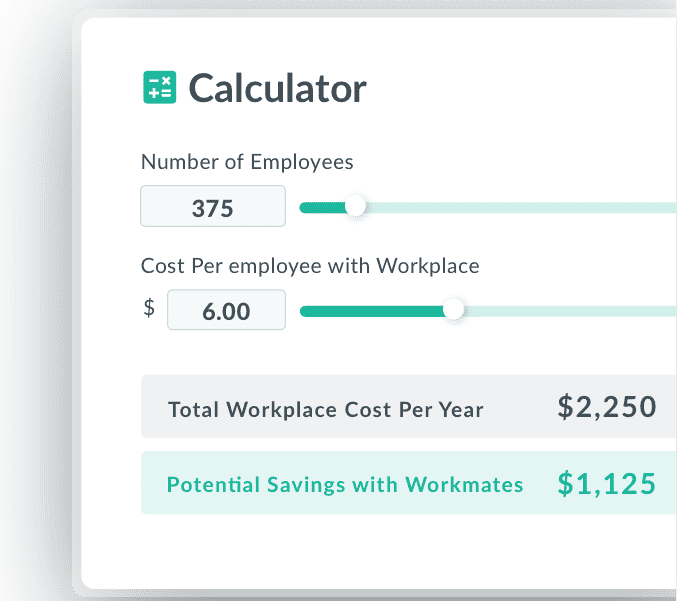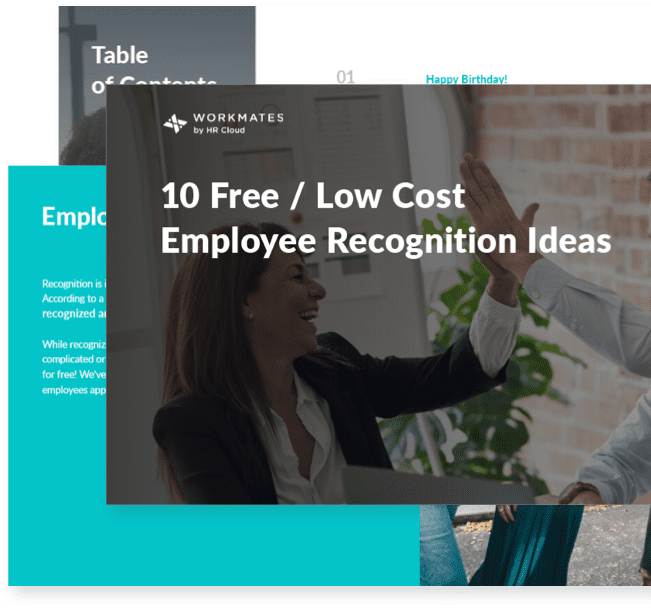How to Improve Workplace Culture to Boost Retention

Did you know that 40% of employees who feel unhappy at work are considering quitting their jobs in the next 3 to 6 months?
Image via McKinsey & Co.
And that’s not all.
In November 2021 alone, 4.5 million employees in the U.S. quit their jobs.
What do these statistics mean?
For many companies and leaders, recruiting, hiring, and retaining talent is a challenge.
In fact, 63.3% of business owners agree that retaining their existing employees is often harder than hiring them.
So, how do you stop your best talent from leaving your organization? How do you retain them?
The answer lies in your workplace culture.
You should nurture a positive workplace culture that attracts top talent, drives engagement, improves happiness, satisfaction, and ultimately performance.
The good news?
This article is going to teach you practical techniques to improve workplace culture to boost employee retention.
Why Improve Workplace Culture?
Strengthening workplace culture offers substantial benefits for both employees and employers.
Here are a few benefits of improving workplace culture:
-
Leads to happy employees
-
Creates a sense of belonging in the workplace
-
Fosters trust between employees and employers
-
Nurtures good relationships between employees and company managers
-
Improves employee productivity
-
Increases employee retention
-
Boosts chances of attracting the right talent
-
Increases employee engagement
-
Builds strong brand identity
Ready to learn how you can improve your workplace culture to boost retention?
Let’s get started.
Ways to Improve Workplace Culture
Here are the various tactics you can employ to give your workplace culture a much-needed boost.
1. Encourage Personal Development Opportunities
Offering continuous training and encouraging personal development opportunities is a great way to improve workplace culture and boost retention.
Employees who are considering quitting their jobs cite a lack of career development and advancement as their number one reason.
Image via McKinsey
What does this mean?
As an employer, you should identify areas where you can help your employees learn new skills. In fact, upskilling your employees will boost retention and also help them to adapt to the constant technological advancements.
As per the latest survey, 51% of newly joined employees in the engineering field don’t have the required skills, and employers need to train them for better performance.
When you upskill your employees, you equip them with skills and competencies that can help them keep up with the changing demands of your business too.
To provide your employees with continuous training and development, you can adopt helpful technology like a course creation platform such as Thinkific to launch internal courses.
You can also allow your employees to work on different projects to build their experience.
You can further motivate them by sending them to conferences and providing learning allowances.
Find Out How Much You Can Save by Switching to Workmates.
and save upwards of 60%

2. Promote Work-Life Balance
Employee burnout is on the rise. And as an HR manager, you shouldn’t ignore this.
A 2021 survey report from Indeed suggests that 52% of employees feel burned out. Burnout is brought about by poor work-life balance that induces stress on employees.
If not managed properly, it can affect your employees’ performance.
In fact, burnout is the top reason 40% of employees would consider quitting their job. Besides, 70% of them would quit their current company for a different one that offered comprehensive benefits, support, resources, and policies that focus on reducing burnout.
Needless to say, promoting a good work-life balance can enhance job satisfaction and ultimately improve productivity in the workplace.
So, what can you do to promote a better work-life balance?
Here are some workplace practices you can adopt to support your employees’ health and well-being:
- Ask workers about their work-life balance needs
- Offer employees free optional resources such as fitness classes, healthy eating courses, and music therapy.
- Educate employees about work-life balance
- Support telecommuting employees.
- Encourage short breaks and vacation time
- Encourage managers and team leaders to focus on productivity instead of hours worked
- Don’t reach out to them after hours
- Review workloads regularly.
- Allow flexible and remote working options.
Image via Zenefits
3. Give Your Employees the Right Tools
If you want your employees to help you accomplish your goals, you need to give them the right tools, resources, and information. Of course, this will depend on the mode in which your organization operates.
For instance, remote employees will need different tools than those working in an in-office setup. Investing in a cloud-based platform is a great idea to bring about a parity here since it can be accessed by employees from wherever they are working. It’s a great way to manage business expenses too as you’ll only need to spend on one software.
A good rule of thumb is to find centralized software such as sales tools and accounting software that streamlines their daily tasks. For instance, customer relationship management software can help your employees communicate with customers and leads. You can also invest in good accounting software to support your accountants.
4. Have Strong Values, Vision, and Strategy
Companies with strong vision statements in place can attract, engage, and retain top talent. This is because hardworking, dedicated, and motivated employees are more likely to work for companies that have strong values and objectives.
What’s more?
Having sound company values, a clear vision, and a solid business strategy can help offer your employees a sense of guidance and security for their daily activities.
Besides, they demonstrate what your company stands for and this can attract talent who believe in those values too.
Employees who feel aligned with workplace values can make better business decisions that help them achieve the company’s vision and strategy. That way, both the employees and the organization benefit.
Finally, remember, having strong values, vision, and strategy at the workplace isn’t enough. You need to keep reminding your employees about them so that they can integrate them into everything they do for the company.
Stop Conflict Before it Begins with
a Culture of “Thank You”

5. Create a Culture of Recognition
Leadership support and employee recognition are among the top three most effective factors to boost retention without spending a dime.
Besides, recognition improves employee engagement, workplace productivity, and performance by 14%.
What does this mean?
Companies should have a culture of recognizing good performance because employees want to feel valued and appreciated. It’ll motivate them too.
Here are tips to make your employees feel valued:
- Give them bonuses
- Involve them in good employee advocacy practices
- Praise top-performing employees in writing or verbally
- Organize a party in honor of top-performing employees or teams
- Have a great employee recognition program
6. Offer Flexible Work Arrangements
In 2022, 16% more employees prefer to work in a hybrid workplace than 2021. Besides, a flexible work arrangement is among the top three motivators for employees to find a new job.
Image via McKinsey & Co.
From the statistics, it’s clear that employees want to work remotely or in a hybrid workplace, so it’s important to keep that in mind. Not offering that option can make employees look for new jobs elsewhere.
Here are a few ways to improve flexible work arrangements and boost retention:
- Explore various modes of flexible work arrangements
- Provide the right tools and resources for employees to succeed
- Invest in better video technology to improve online communication and collaboration
- Introduce a compressed workweek or flexible working hours
7. Provide More Positive Feedback Constantly
Feedback, both positive and constructive, can help employees improve and perform their duties well.
Positive feedback can also motivate employees and give them the determination they need to improve their performance.
As a rule, you should check to ensure you aren’t giving your employees more negative feedback as that could demoralize them and push them away.
Final Thoughts
As a HR manager, it’s important that you work to improve your workplace culture as it can play a major role in improving your retention. From encouraging personal development to helping employees with work-life balance, you should do it all.
By implementing all these tips mentioned above, you will be able to improve employee morale and productivity which will lead to happier employees.
So, go ahead and start building a cohesive workplace.
Author Bio:
Gaurav Sharma is the founder and CEO of Attrock, a results-driven digital marketing company. Grew an agency from 5-figure to 7-figure revenue in just two years | 10X leads | 2.8X conversions | 300K organic monthly traffic. He also contributes to top publications like HuffPost, Adweek, Business 2 Community, TechCrunch, and more.
The 40 Best Thank You
Messages for Colleagues
building a positive and engaged culture at your company.

